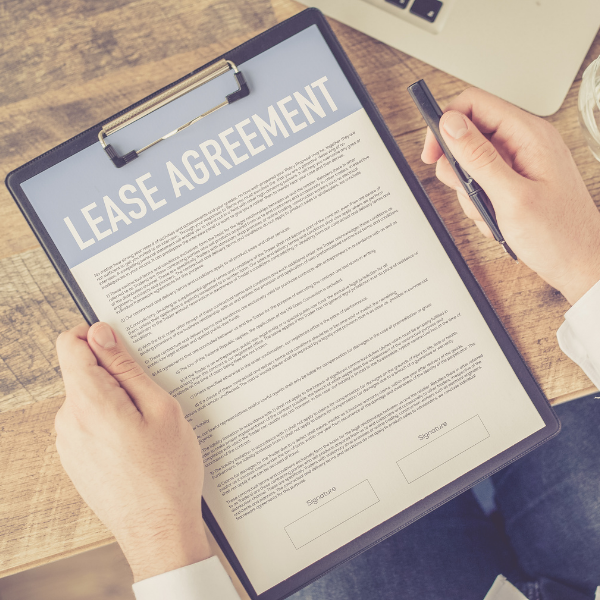Planning on leasing a commercial space in the Big Apple? Leasing in New York City is a big decision for any business owner. While NYC offers plenty of opportunities and exposure, the city is infamous for high rents and restrictions on spaces. However, this shouldn’t deter businesses from pursuing their goal of opening a brick-and-mortar location in the melting pot of America. Here are some key things to know before beginning your NYC leasing journey and taking your business to the streets.
Location means everything when leasing in NYC
The location of your business plays an enormous role in your clientele and ultimate success. This applies anywhere you set up shop, but even more so in a city like New York. It takes a fair amount of research to identify your ideal customers and where they like to eat, shop, and where they work. The same goes for your employees — some businesses want to consider the convenience of commute when browsing potential spaces.
You’ll also want to consider whether you want a first-floor space or an upper floor. First-floor locations attract more foot traffic and new customers who happen upon your business. Higher floors offer an advantage for businesses whose clientele will seek them out, as is the case for established or in-demand services.
Some businesses can’t operate in certain spaces
Like other cities, NYC restricts the types of businesses that can operate in spaces. According to NYC.gov, “New York City limits the uses of areas through numerous ‘zoning districts’ throughout the city. The most common zoning districts the City designates are residential, commercial, and manufacturing.”
Zoning districts also have the power to limit other features of buildings within their borders, including signage and building height. While you can apply for a zoning variance, which allows you to use a property for a purpose not permitted in a zoning district, it will cost you a lot of time and money.
Besides zoning districts, the NYC Department of Buildings also issues Certificates of Occupancy (COs) for properties. These further specify the kinds of businesses that can occupy a space. Like zoning variances, appeals to a CO are costly and typically rejected by landlords.
You can’t occupy a building before the DOB issues a permanent or temporary CO, so be sure to confirm that one has been issued for any space that sparks your interest.
Commercial leases offer less protection under the law than residential
If you’re opening your business’s first brick-and-mortar location, the fact that commercial tenants are offered significantly less legal protection than residential tenants may come as a shock. For example, landlords of commercial spaces are basically only legally required to do what your lease agreement entails.
Meanwhile, the law requires residential landlords to provide certain services to tenants. For instance, the law does not prohibit commercial landlords from increasing the rent after the lease ends. It does block residential landlords from increasing the rent on regulated apartments. Plus, the law does not require commercial landlords to offer a lease renewal, but it does require residential landlords to do so.
A major takeaway from this disparity is that commercial tenants need to negotiate the terms of their lease carefully to avoid getting stuck in an unfavorable situation down the road.
Short term vs. Long term leases
Business owners should carefully consider whether a short or long-term lease is better for them. Short-term leases (5 or fewer years) offer more flexibility than long term, so they are generally better for new businesses or those unsure of their future success.
On the other hand, long-term leases (5+ years) are great for businesses that want to establish themselves and gain stability. Since New York rent is expensive, especially in popular and high-volume areas, businesses leasing commercial spaces need to be well-established in order to bank on a long-term lease. Additionally, those looking for short-term leases shouldn’t plan on making major renovations to a space.
Renovations are an investment, and probably should be off the table for a business that is unsure about its future success or plans.
Small business support and resources
NYC Small Business Services offers support to small businesses that plan to open up shop. For instance, businesses can take free online business courses. Topics range from commercial lease basics to applying to loans and grants, to neighborhood-specific guides on how to get your business off the ground.
NYC Business Quick Start is another effort by the city to make opening a storefront in New York easier, quicker, and more accessible. According to the NYC.gov website, the features of the program include:
- A concierge service where businesses have a sole point of contact to help navigate City regulations
- A public dashboard
- Guaranteed 48-hour response to all small business inquiries
- Cutting processing time by 50 percent
How to prepare for leasing in NYC
By arming yourself with as much information as possible and taking advantage of NYC’s small business resources, any business owner can make opening a storefront in the Big Apple a reality. At REDHANDED, we make it even easier to bring your brick-and-mortar dreams to life when you’re preparing for leasing in NYC.
Search available properties at your fingertips, compare rents across neighborhoods and connect directly with landlords. Happy space hunting!
Sources:
https://www1.nyc.gov/assets/sbs/downloads/pdf/about/reports/commercial-lease-guide-accessible.pdf
https://www1.nyc.gov/nycbusiness/article/business-courses
https://www1.nyc.gov/nycbusiness/article/get-help-with-licenses-and-permits






